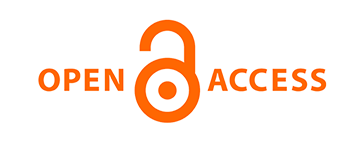Lung lesions in opossums (Didelphis virginiana) naturally infected by Paragonimus mexicanus in Colima, Mexico
Main Article Content
Abstract
Paragonimiasis is a zoonotic disease in Mexico caused by adult digeneans of Paragonimus mexicanus species. Life cycle of this parasite involves two necessary intermediate hosts: a snail and a crab, and a mammal serving as the definitive host. Humans acquire the infection when eating raw or undercooked crabs infected by metacercariae. In march 2005, six opossums (Didelphis virginiana) were captured in Colima, Mexico. These opossums were euthanized in order to identify lesions caused by lung paragonimiasis. Infected lungs were processed and stained following the standard histological techniques. Four of the six opossums (67%) carried 25 adult parasites identified as P. mexicanus. The lung with the greatest number of parasites showed 13 multifocally distributed granulomas. The main histological changes were: infiltration of monocytes, lymphocytes, macrophages, plasma cells, epithelioid and giant cells, abundant neutrophils and eosinophils, as well as central necrosis of the eosinophilic granuloma. Likewise, interstitial pneumonia was observed due to the presence of eggs between the granuloma walls and alveolar spaces. This study represents the first description of the pulmonary lesions caused by P. mexicanus in wild mammals.
Article Details
License

Veterinaria México OA by Facultad de Medicina Veterinaria y Zootecnia - Universidad Nacional Autónoma de México is licensed under a Creative Commons Attribution 4.0 International Licence.
Based on a work at http://www.revistas.unam.mx
- All articles in Veterinaria México OA re published under the Creative Commons Attribution 4.0 Unported (CC-BY 4.0). With this license, authors retain copyright but allow any user to share, copy, distribute, transmit, adapt and make commercial use of the work, without needing to provide additional permission as long as appropriate attribution is made to the original author or source.
- By using this license, all Veterinaria México OAarticles meet or exceed all funder and institutional requirements for being considered Open Access.
- Authors cannot use copyrighted material within their article unless that material has also been made available under a similarly liberal license.



